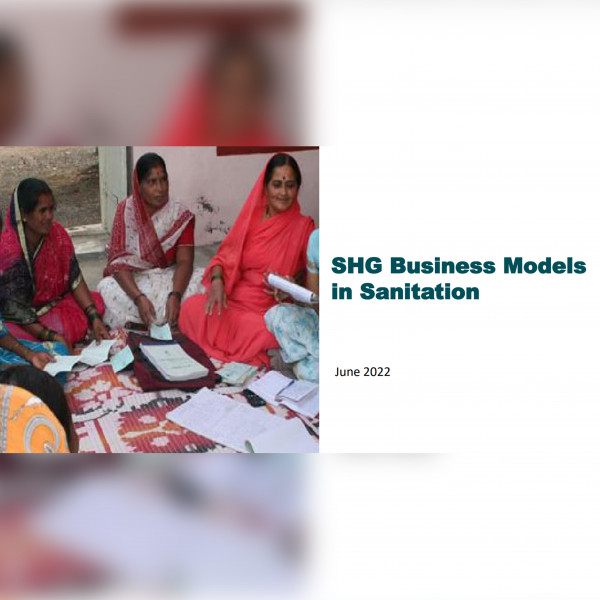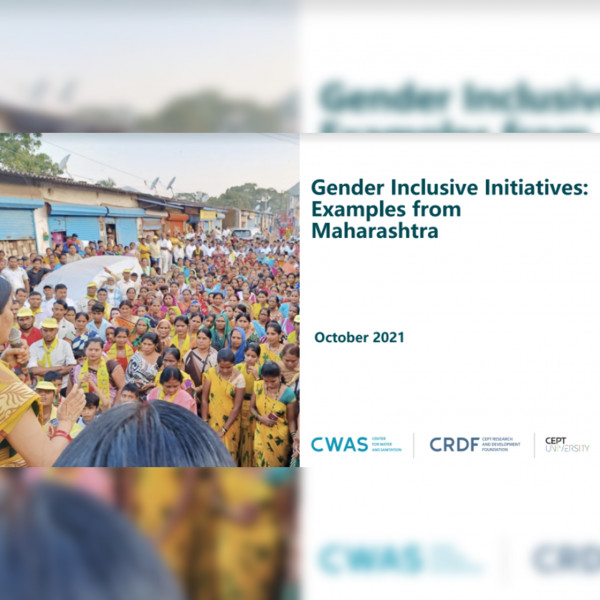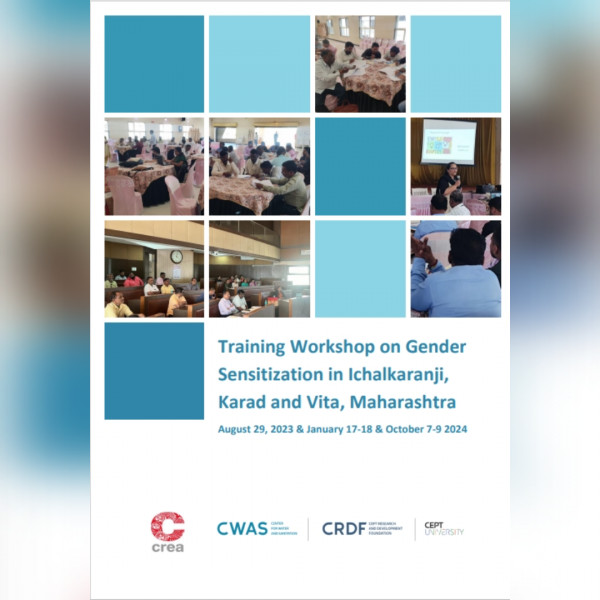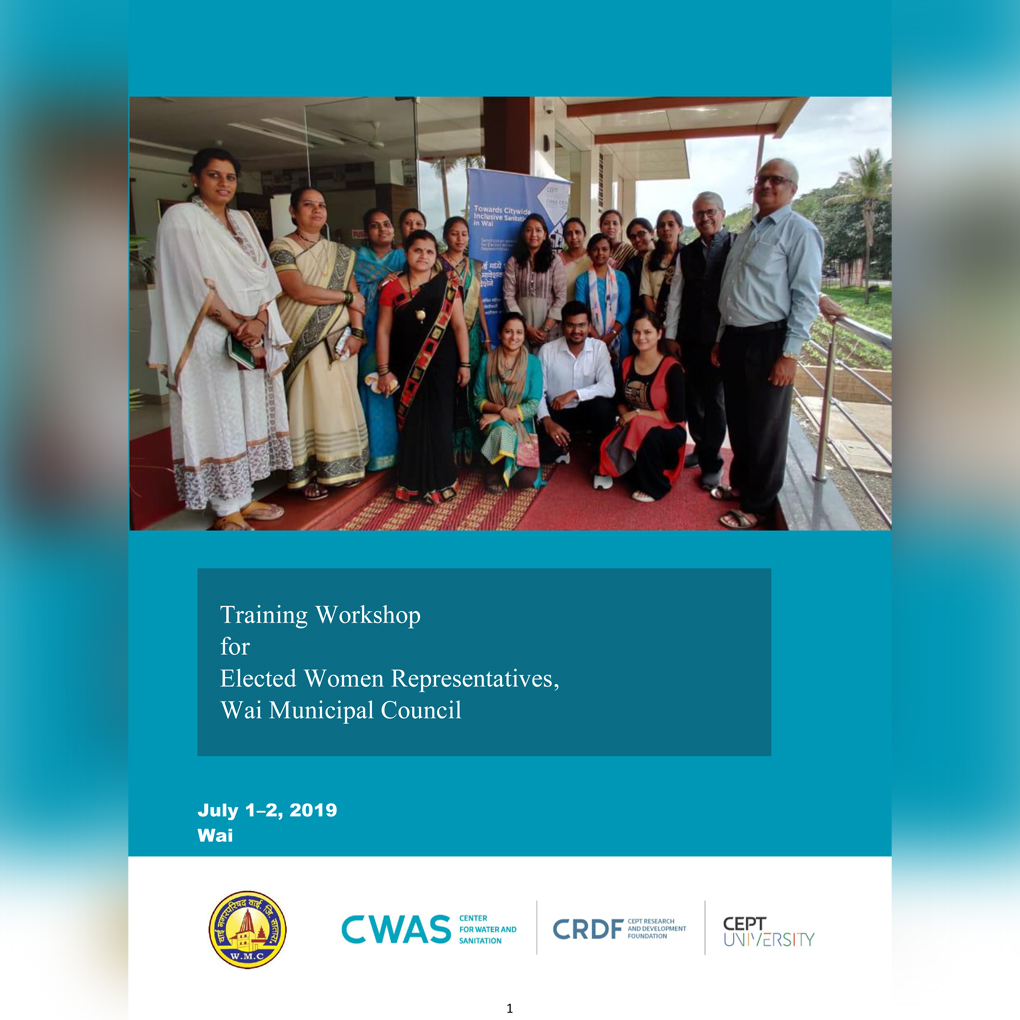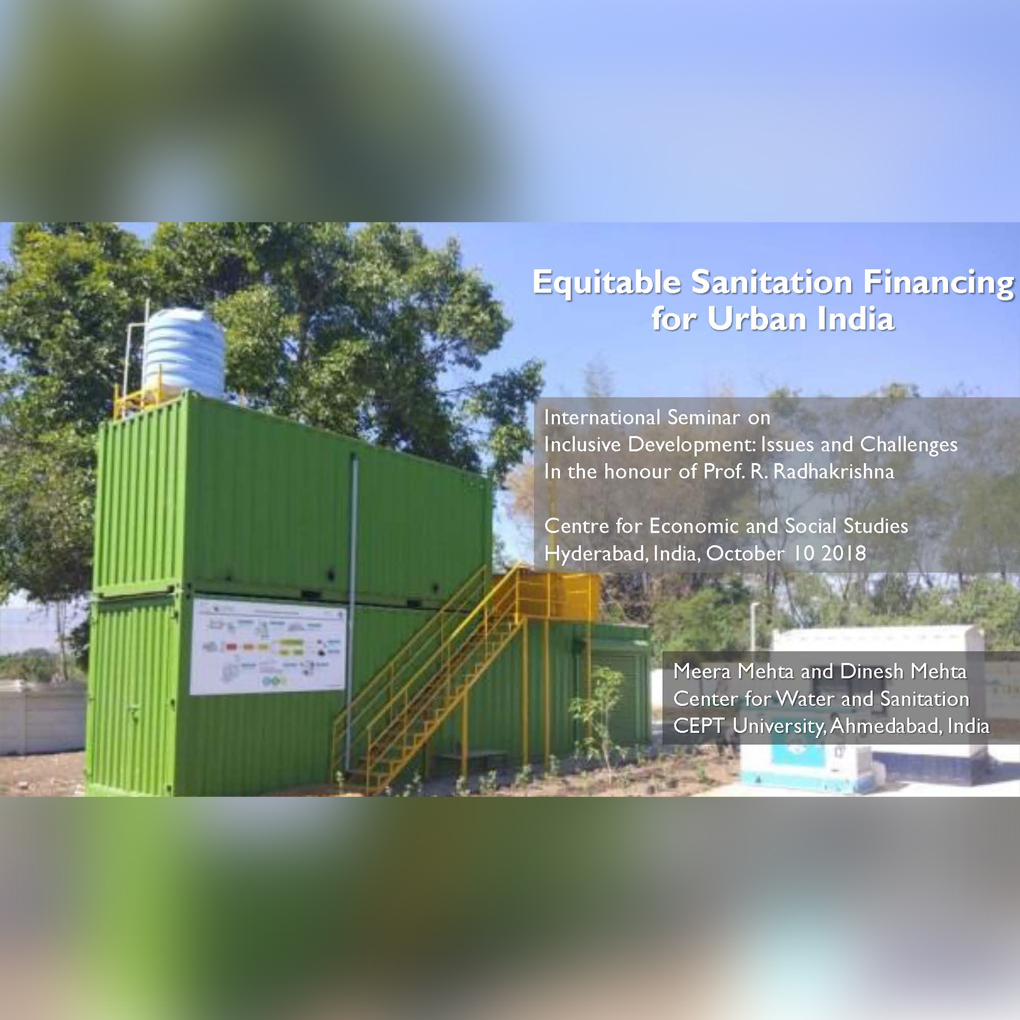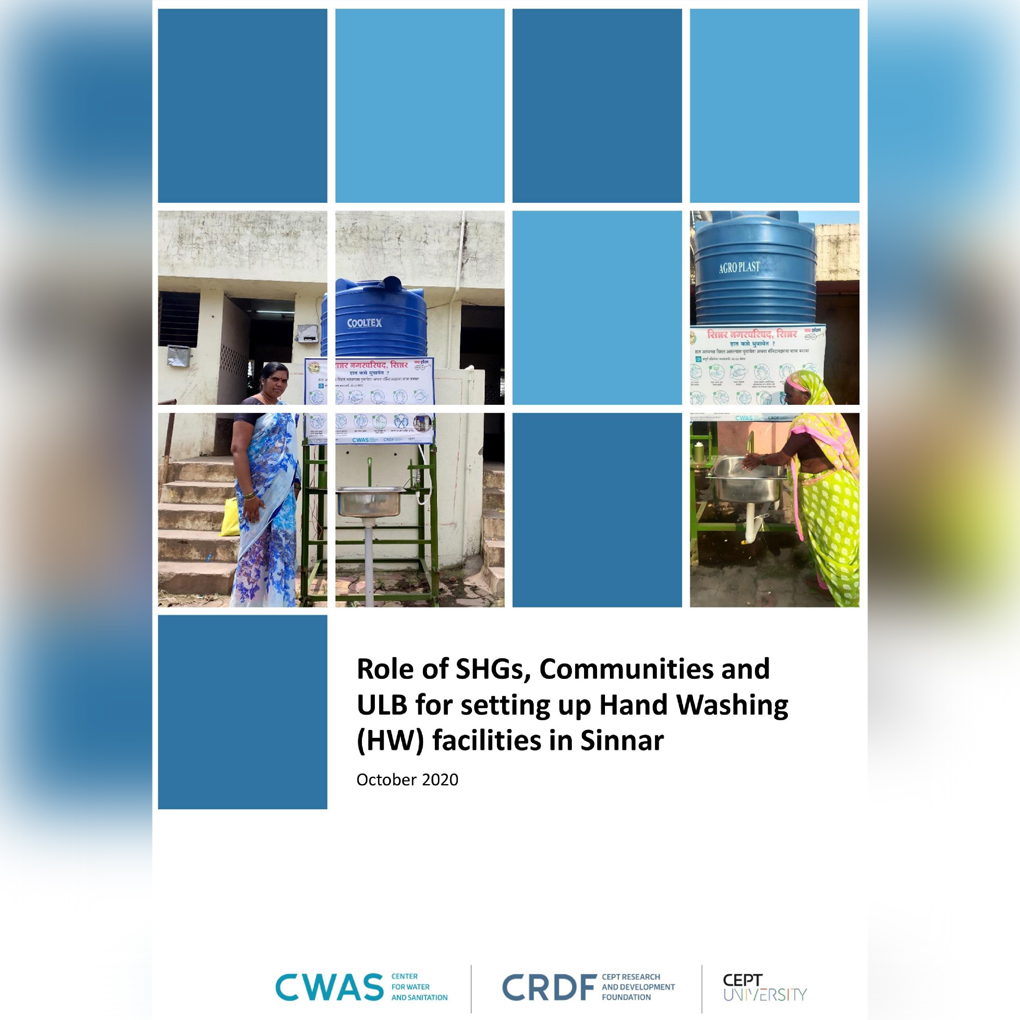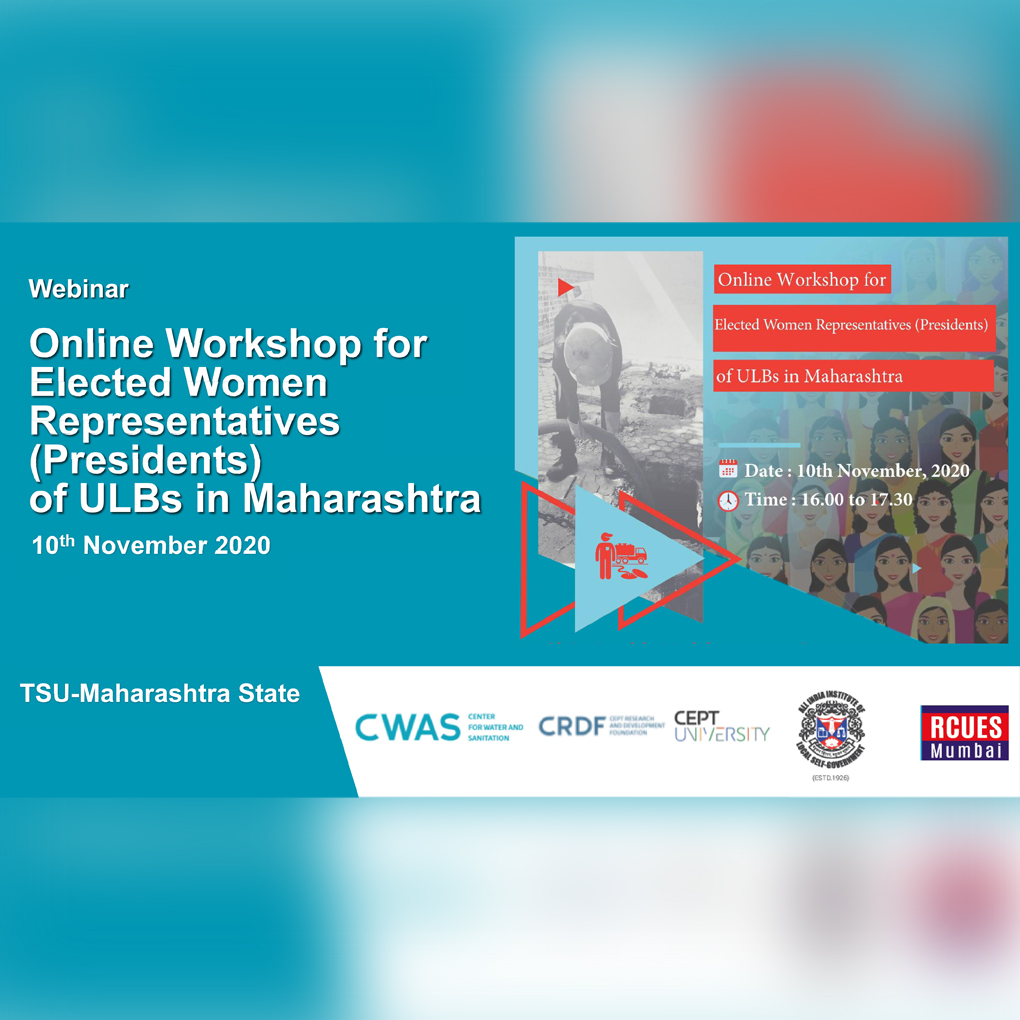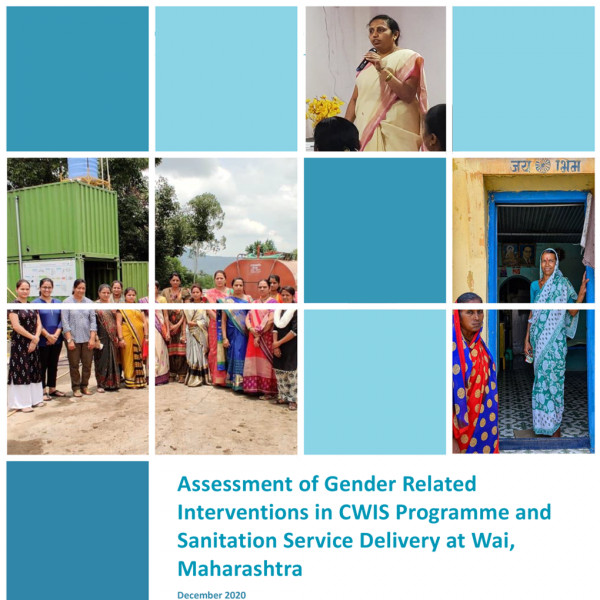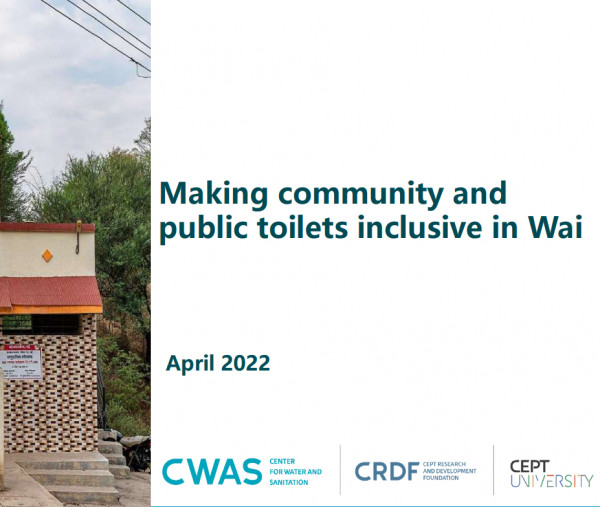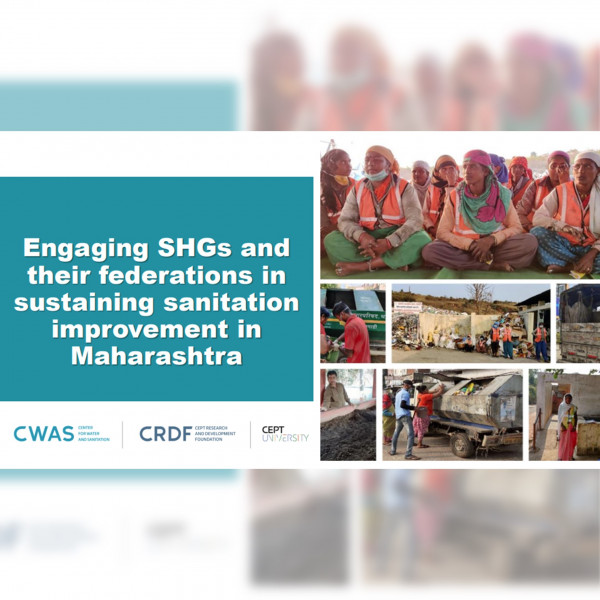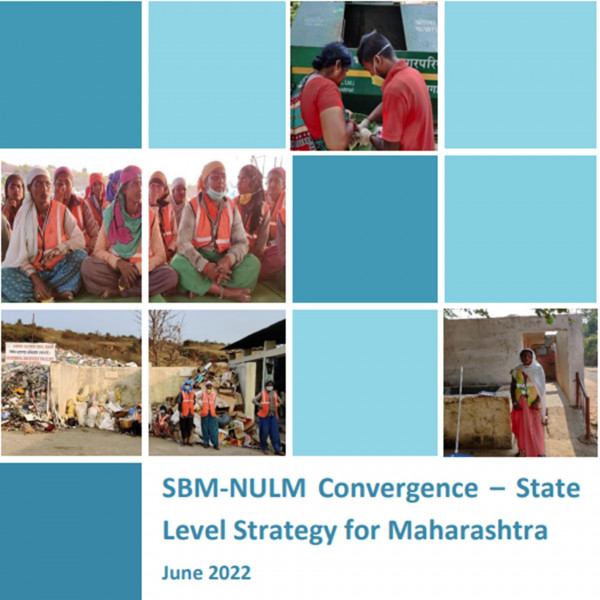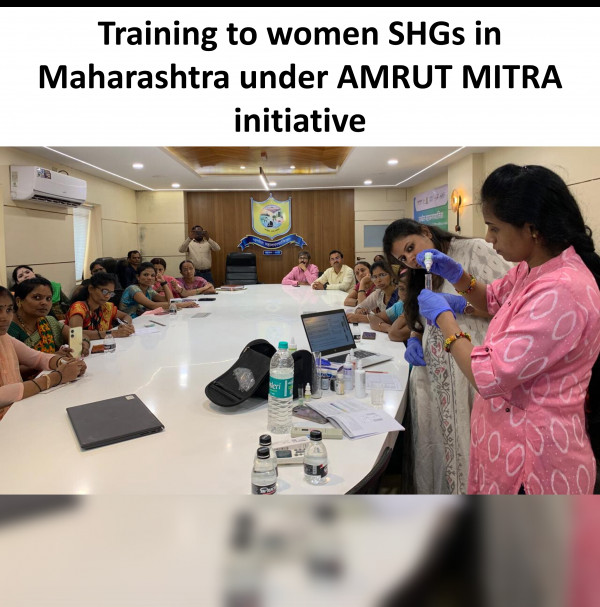Gender inclusivity
One of the targets of SDG 6 is “By 2030, achieve access to adequate and equitable sanitation and hygiene for all and end open defecation, paying special attention to the needs of women and girls and those in vulnerable situations”. CWAS has paid attention to vulnerable groups and women across its work in water and sanitation. It is our belief that there is a need to look at women not only as beneficiaries but empower them to be entrepreneurs, and leaders. Our work on gender is to move from access to agency to transformation.
There is an emerging focus on infrastructure provision in terms of catering to the needs of women through access to individual household toilets, MHM facilities in community and public toilets etc. In addition, it is important to look at specific activities and programs that bring about structural transformation to enable women’s empowerment. CWAS have been working closely to review the existing programs for gender integration of women for FSSM and engaging them for livelihood generation.
At city level, CWAS has supported the municipal council of Wai for the implementation of the Citywide Inclusive Sanitation (CWIS) program. Gender inclusivity is one of the major focus areas. Various initiatives were organized to improve participation of women and build capacities of elected women representatives for FSSM. Additionally, for women residing in slums and dependent on community toilets, design interventions focusing on needs of women was introduced.
SHG Business Models in FSSM sanitation chain
This is an exploratory study focusing on involving Self Help Groups (SHGs) in FSSM sanitation chain. It captures various business...
Moving from access to agency and transformation for women: Case of Wai Municipal Council
This compendium showcases interventions taken by WMC (Wai Municipal Council) with support from CWAS has been successful in initiating such...
Gender Inclusive Initiatives: Examples from Maharashtra
This compendium showcases good practice cases from Maharashtra. These are cases where urban local bodies (ULBs) have taken proactive initiatives...
Training Workshop on Gender Sensitization in Ichalkaranji, Karad and Vita
CWAS, in partnership with CREA, organized workshops in Ichalkaranji, Karad, and Vita, Maharashtra, to promote gender sensitization at workplaces and...
Training Workshop for Elected Women Representatives, Wai Municipal Council
Urban Local Bodies (ULBs) in Maharashtra have accepted that FSSM has to be inclusive, ensuring that everyone has access to...
International Seminar on Inclusive Development - Equitable Sanitation Financing for Urban India
An International Seminar on Inclusive Development: Issues and Challenges was organized by the Centre for Economic and Social Studies (CESS),...
Role of SHGs, Communities and ULB for setting up Hand Washing facilities in Sinnar
Amid the Covid-19 pandemic, CWAS through funding from Arghyam has supported Sinnar Municipal Council (SMC) to provide pedal operated hand...
Online Workshop for Elected Women Representatives (Presidents) of ULBs in Maharashtra
An online webinar was organized to sensitise Elected Women Representatives (EWRs) for effective functioning and participation in local governance focusing...
Assessment of Gender Related Interventions in CWIS Programme and Sanitation Service Delivery at Wai, Maharashtra
This report was prepared by CWAS and PRIA teams to analyse the current sanitation service delivery in Wai from a...
Making community and public toilets inclusive in Wai
Majority of the households in Wai city have constructed their own toilets, few are still dependent on community toilets (CTs)...
Engaging SHGs in sustaining sanitation improvement in Maharashtra
This landscape study focuses on involving Self Help Groups (SHGs) in urban sanitation in Maharashtra. This study includes broad status of...
SBM-NULM Convergence – Draft State Level Strategy for Maharashtra
Drawing from the principles of DAY-NULM and SBM-urban convergence guidelines, a draft Convergence Strategy for the State of Maharashtra is...
Training to women SHGs in Maharashtra under AMRUT MITRA initiative
CWAS in collaboration with the Government of Maharashtra in providing training to women's Self-Help Groups (SHGs) under the AMRUT MITRA...
